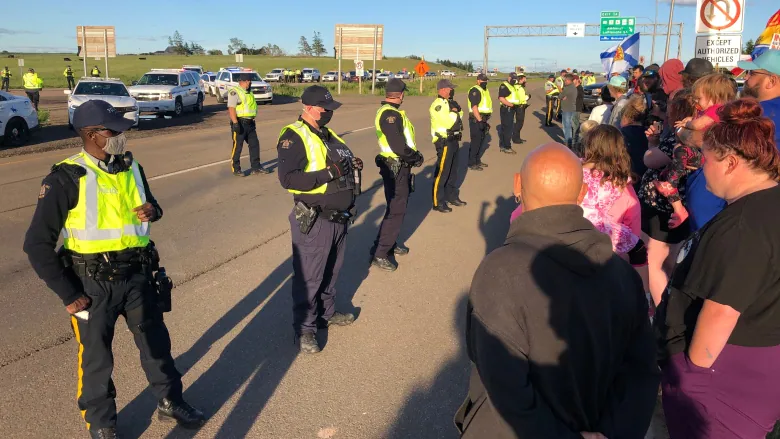Policing and the Pandemic
Respectfully, in my view, Stott, West and Harrison (2021) in their “A Turning Point, Securitization, and Policing in the Context of Covid-19: Building a New Social Contract Between State and Nation?” (http://bit.ly/3729L9W) make a reasonable suggestion in that “taken together, all this suggests priorities for the current policing mission, which in these early stages, should be focused on developing as much goodwill and legitimacy within local communities as can be achieved.” I’d suggest that the authors were applying reasonable foresight in proposing that the pandemic ought to be recognized as not just the next crisis for policing to respond to but rather an opportunity for policing to get that response right.
Those in policing are all too familiar with the ebbs and flows of public sentiment. This is our reality, and after all, we are in the people business. I’d agree that we are under more scrutiny now more than ever. Many may argue that we in policing are, at least in part, the makers of our own bed through our own actions and/or inaction. Once police leaders are able accept that we can always do better, that we police by consent, and that the public’s perception of us is our reality, then organizational objectives should become clearer.
Another interesting Harvard University affiliated white paper authored by Brooks and Lopez (2020), “Policing in a Time of Pandemic: Recommendations for Law Enforcement” (https://ethics.harvard.edu/policing-pandemic), which suggested that “this crisis creates a vast natural experiment on the impact of changed policing practices, and departments and municipalities should, whenever possible, seek to collect data and subsequently undertake a comprehensive review of how pandemic-related changes correlate with crime rates, calls for service, changes in expressed levels of community trust in police, officer morale and satisfaction, etc.”
The question remains, are police doing enough to leverage this opportunity?
In the land of lobster and lighthouses here in Nova Scotia we have demonstrated ourselves as a comparatively safe haven throughout the pandemic. We have, for the most part, tempered our authorities accordingly, signaled our willingness to partner, to support and recognize the reputational-legitimacy risks of doing otherwise. Police have forged key intergovernmental, NGO and community partnerships to build a coalition style Covid response. As such, police very early on have became part of meaningful, positive community change in NS. As another example, as early as April 2020, police have contributed to justice transformation through working groups struck to examine and implement Covid related justice system improvements (e-warrants, digital evidence management, virtual court, etc.). We’ve already developed some envied best practices which have garnered national interest. In another example, NS police have vigilantly applied its stewardship in the areas of safety and security to support Public Health’s Covid community-based testing and vaccine roll out initiatives. Both these examples provided unique and innovative opportunities for police to recognize, adapt and engage in key partnerships
Respectfully, in my view, Stott, West and Harrison (2021) in their “A Turning Point, Securitization, and Policing in the Context of Covid-19: Building a New Social Contract Between State and Nation?” (http://bit.ly/3729L9W) make a reasonable suggestion in that “taken together, all this suggests priorities for the current policing mission, which in these early stages, should be focused on developing as much goodwill and legitimacy within local communities as can be achieved.” I’d suggest that the authors were applying reasonable foresight in proposing that the pandemic ought to be recognized as not just the next crisis for policing to respond to but rather an opportunity for policing to get that response right.
Those in policing are all too familiar with the ebbs and flows of public sentiment. This is our reality, and after all, we are in the people business. I’d agree that we are under more scrutiny now more than ever. Many may argue that we in policing are, at least in part, the makers of our own bed through our own actions and/or inaction. Once police leaders are able accept that we can always do better, that we police by consent, and that the public’s perception of us is our reality, then organizational objectives should become clearer.
Another interesting Harvard University affiliated white paper authored by Brooks and Lopez (2020), “Policing in a Time of Pandemic: Recommendations for Law Enforcement” (https://ethics.harvard.edu/policing-pandemic), which suggested that “this crisis creates a vast natural experiment on the impact of changed policing practices, and departments and municipalities should, whenever possible, seek to collect data and subsequently undertake a comprehensive review of how pandemic-related changes correlate with crime rates, calls for service, changes in expressed levels of community trust in police, officer morale and satisfaction, etc.”
The question remains, are police doing enough to leverage this opportunity?
In the land of lobster and lighthouses here in Nova Scotia we have demonstrated ourselves as a comparatively safe haven throughout the pandemic. We have, for the most part, tempered our authorities accordingly, signaled our willingness to partner, to support and recognize the reputational-legitimacy risks of doing otherwise. Police have forged key intergovernmental, NGO and community partnerships to build a coalition style Covid response. As such, police very early on have became part of meaningful, positive community change in NS. As another example, as early as April 2020, police have contributed to justice transformation through working groups struck to examine and implement Covid related justice system improvements (e-warrants, digital evidence management, virtual court, etc.). We’ve already developed some envied best practices which have garnered national interest. In another example, NS police have vigilantly applied its stewardship in the areas of safety and security to support Public Health’s Covid community-based testing and vaccine roll out initiatives. Both these examples provided unique and innovative opportunities for police to recognize, adapt and engage in key partnerships that effectively puts money in to the trust bank. In doing the right things, the strategy is to always be working to build and maintain that high trust bank balance to ensure that if/when there is reason for the public to make a trust withdrawal, that there remains enough money (trust) to always successfully navigate forward.
Lemonade from lemons.
“All failure is failure to adapt, all success is successful adaptation.” Max McKeown
(Photo Credit – Jonathan Villeneuve/CBC)
This work is the sole opinion of the author and does not necessarily represent the views of the Canadian Armed Forces, the Canadian Department of National Defence, the Royal Canadian Mounted Police or the Royal United Services Institute of Nova Scotia. The author may be contacted by email at: RUSINovaScotia@gmail.com.



